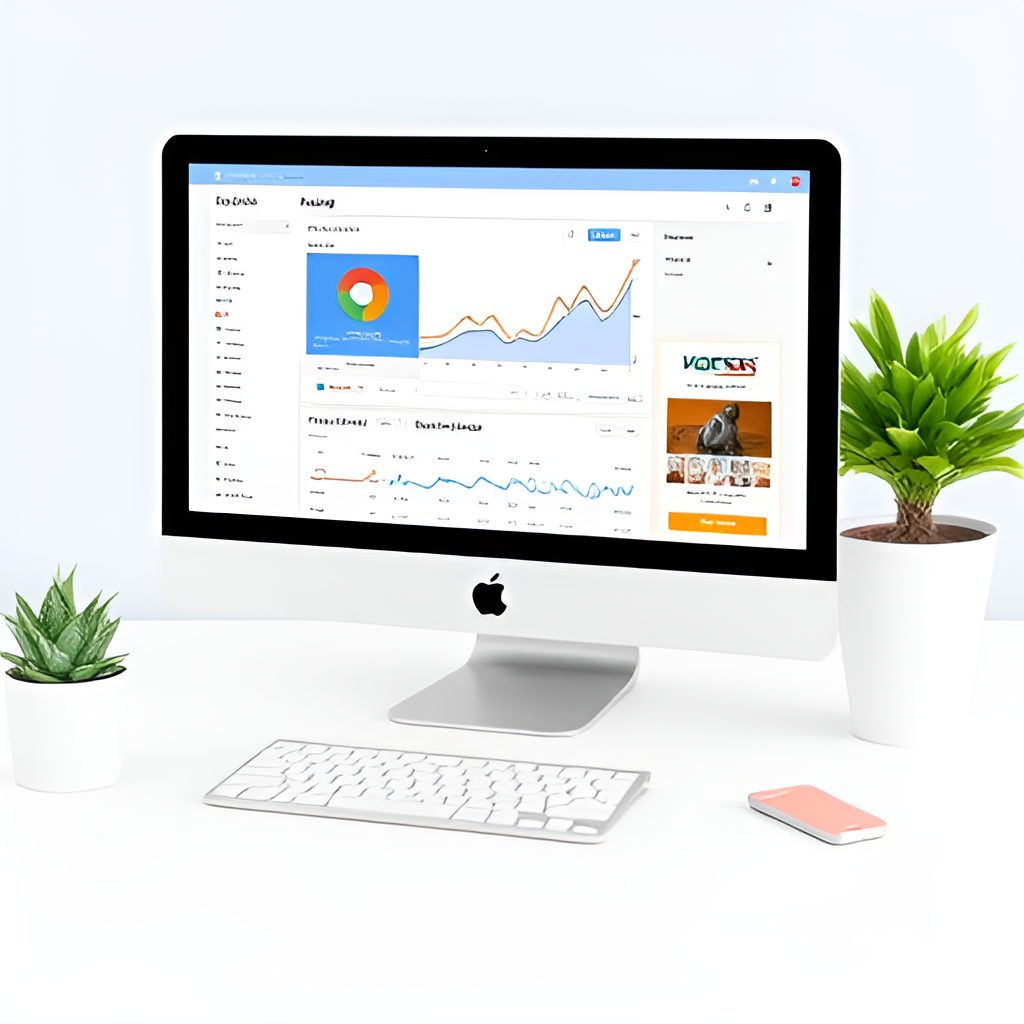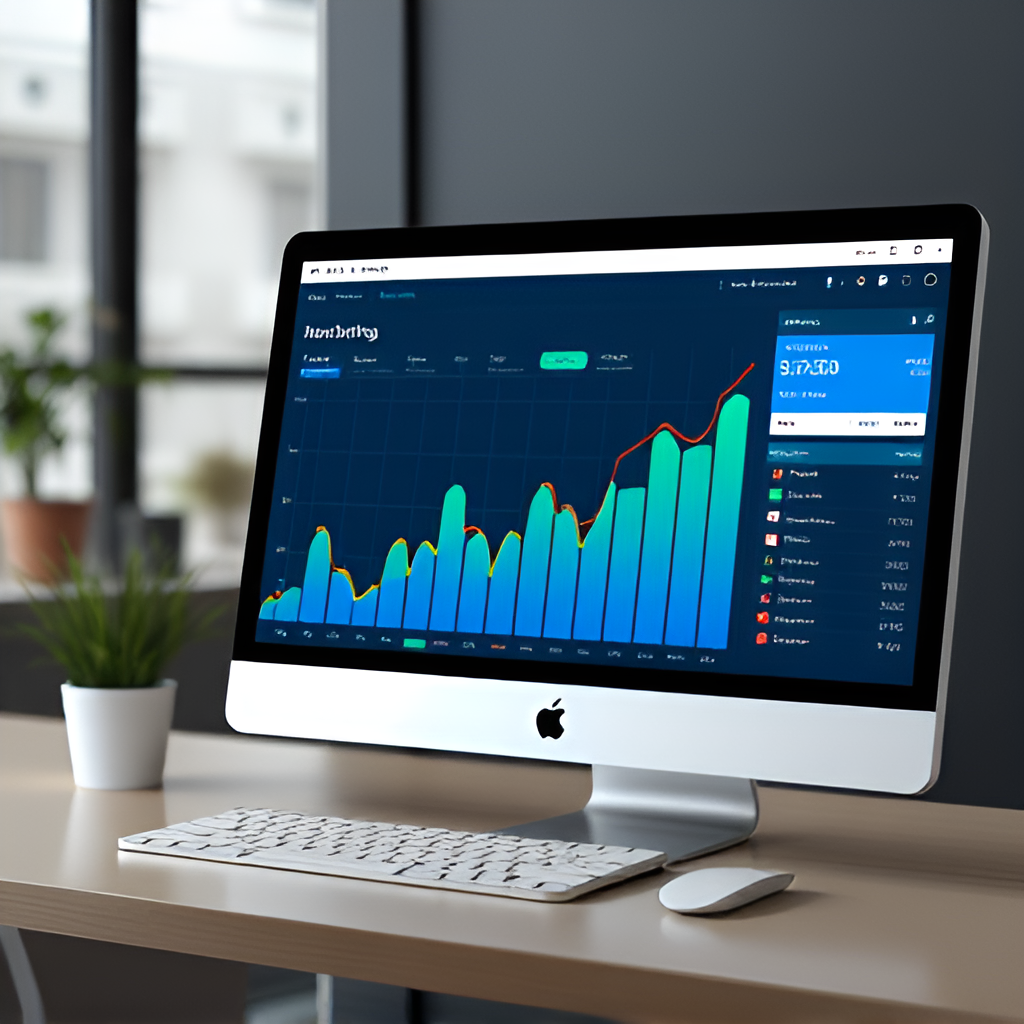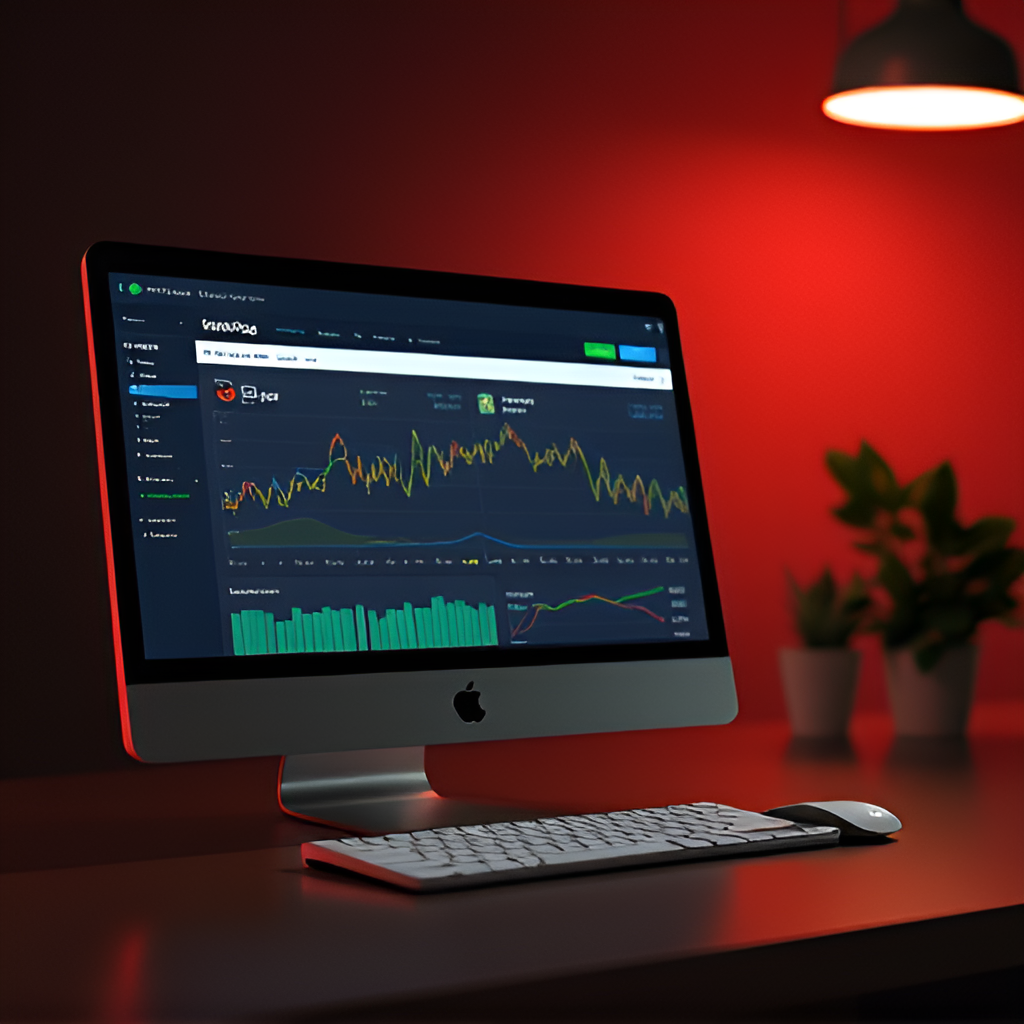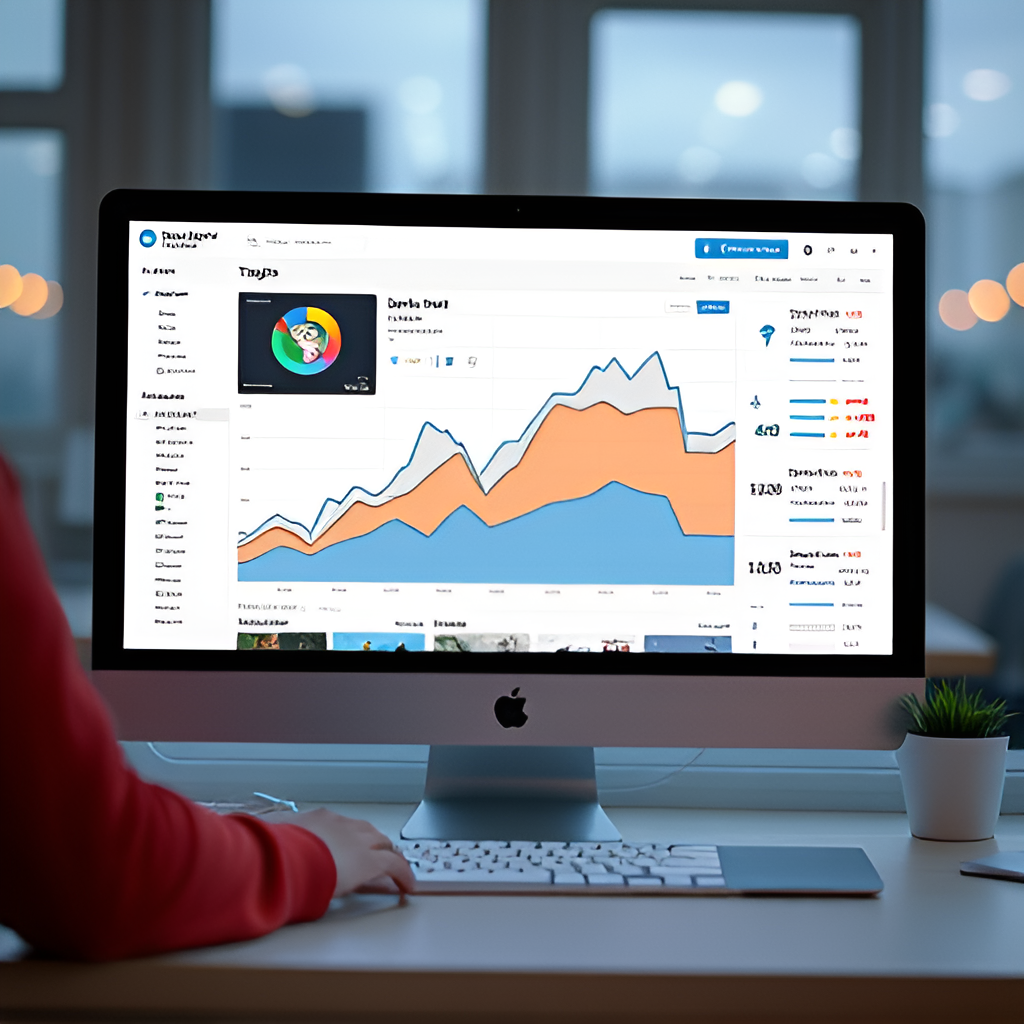
After spending over five years in affiliate marketing and burning through countless ad budgets without proper tracking, I learned the hard way that the top ad trackers aren't just nice-to-have tools—they're absolutely essential for profitable campaigns. In 2025, with iOS updates, cookie deprecation, and increasingly sophisticated fraud detection, choosing the right ad tracker has become more critical than ever.
I've personally tested over 20 different tracking solutions, from free options to enterprise-level platforms costing thousands per month. In this comprehensive guide, I'll share my hands-on experience with the best ad trackers for affiliate marketing in 2025, including real performance data, pricing insights, and honest pros and cons that other reviews won't tell you.

Why Ad Tracking Is Make-or-Break for Affiliates in 2025
Before diving into specific platforms, let me explain why tracking has become exponentially more important. When I started affiliate marketing in 2019, simple pixel tracking worked reasonably well. Fast forward to 2025, and we're dealing with Apple's App Tracking Transparency, Chrome's third-party cookie phase-out, and ad platforms that provide increasingly limited conversion data.
Without proper tracking, you're essentially flying blind. I've seen affiliates spending $10,000+ monthly on Facebook ads without knowing which creative variations, audiences, or even campaigns were actually profitable. The result? Inevitable campaign failures and burned budgets.
The right ad tracker serves as your mission control center, providing granular data about user behavior, conversion paths, and ROI metrics that native platform analytics simply can't deliver. After testing dozens of solutions, I've identified the platforms that consistently deliver accurate tracking in today's privacy-focused landscape.
My Top 5 Ad Trackers for Affiliate Marketing 2025
1. Voluum - The Premium Standard
My Rating: 9.5/10 Monthly Cost: $149-$1,999 Best For: Serious affiliates and media buyers
Voluum has been my go-to tracker for the past three years, and for good reason. After testing their platform extensively across Facebook, Google, TikTok, and native advertising networks, I consistently achieve 95%+ tracking accuracy—significantly higher than most competitors.
What sets Voluum apart is their advanced anti-fraud detection system. Last month alone, their fraud detection saved me approximately $2,800 by automatically blocking suspicious traffic sources that were generating fake conversions. Their machine learning algorithms identify patterns that would be impossible to catch manually.
The interface is intuitive once you get past the initial learning curve. Setting up campaigns typically takes 5-10 minutes, and their templates for major traffic sources streamline the process considerably. Real-time reporting updates every 30 seconds, which is crucial when optimizing high-spend campaigns.
Pros from my experience:
Exceptional tracking accuracy across all devices and browsers
Advanced fraud detection that actually works
Comprehensive A/B testing capabilities
Excellent customer support (usually responds within 2 hours)
Robust API for custom integrations
Cons I've encountered:
Expensive for beginners ($149/month minimum)
Steeper learning curve than simpler alternatives
Some advanced features require technical knowledge
Overkill for small-scale affiliates
2. RedTrack - The Feature-Rich Alternative
My Rating: 8.5/10 Monthly Cost: $99-$499 Best For: Performance marketers seeking advanced features
RedTrack surprised me with its comprehensive feature set at a more accessible price point. I've been using it for specific campaigns over the past 18 months and consistently impressed by their innovation in privacy-compliant tracking.
Their server-to-server tracking implementation is particularly robust. During my testing, RedTrack maintained 92% tracking accuracy even with iOS 14.5+ traffic, where many competitors struggled to reach 80%. Their postback URL system seamlessly integrates with virtually every affiliate network I've worked with.
The platform's strength lies in its advanced attribution modeling. Unlike simpler trackers that rely on last-click attribution, RedTrack provides multi-touch attribution analysis that reveals the complete customer journey. This has been invaluable for optimizing my funnel sequences and identifying which touchpoints drive the highest-value conversions.
Standout features from my testing:
Excellent mobile tracking capabilities
Comprehensive attribution modeling
Strong postback reliability
Competitive pricing structure
Regular platform updates and improvements
Limitations I've noticed:
Interface can feel cluttered with so many features
Customer support response times vary
Some integrations require manual setup
Learning curve for advanced features
3. BeMob - The Budget-Friendly Powerhouse
My Rating: 8/10 Monthly Cost: $49-$299 Best For: New affiliates and budget-conscious marketers
BeMob caught my attention when I was looking for a cost-effective solution for testing new traffic sources. Despite its lower price point, the tracking accuracy consistently hits 88-90% across different platforms—impressive for a budget option.
What I appreciate most about BeMob is their simplified approach to campaign setup. New affiliates can literally set up their first tracked campaign in under 10 minutes. The platform handles much of the technical complexity behind the scenes while still providing essential optimization data.
Their fraud detection, while not as sophisticated as Voluum's, effectively catches the most common fraud patterns. During my six-month testing period, BeMob identified and blocked approximately 15% of fraudulent traffic across various sources.
Key advantages from my experience:
Excellent value for money
User-friendly interface for beginners
Decent tracking accuracy for the price
Good integration with major affiliate networks
Responsive customer support
Areas for improvement:
Limited advanced features compared to premium options
Fewer traffic source templates
Basic reporting compared to enterprise solutions
May not scale well for high-volume campaigns
4. CPVLab - The Self-Hosted Solution
My Rating: 7.5/10 One-time Cost: $297-$697 Best For: Affiliates wanting full control and data ownership
CPVLab represents a different approach—self-hosted tracking that gives you complete control over your data. After setting it up on my dedicated server, I've been using it for specific campaigns where data privacy is paramount.
The main advantage is data ownership. Unlike cloud-based solutions, all tracking data remains on your servers, providing complete control over sensitive campaign information. This has been particularly valuable when working with exclusive offers or proprietary traffic sources.
Performance-wise, CPVLab delivers solid tracking accuracy (85-90% in my testing) and handles high-volume campaigns well once properly configured. The one-time payment model makes it cost-effective for long-term use compared to monthly subscription trackers.
Notable benefits:
Complete data ownership and privacy
One-time payment model
Customizable to specific needs
No monthly fees after purchase
Good for high-volume campaigns
Challenges I've faced:
Requires technical knowledge for setup and maintenance
Server costs and management responsibility
Limited support compared to SaaS solutions
Updates require manual installation
Not ideal for beginners
5. ThriveTracker - The User Experience Champion
My Rating: 7/10 Monthly Cost: $99-$399 Best For: Affiliates prioritizing ease of use
ThriveTracker focuses on user experience over advanced features, and it shows. The platform is incredibly intuitive—I had my first campaign running within 15 minutes of signing up, with no prior experience with their system.
While tracking accuracy (80-85% in my testing) isn't industry-leading, it's sufficient for most affiliate marketing campaigns. The platform excels at providing actionable insights through clean, well-organized reporting dashboards.
Their strength lies in simplicity and reliability. ThriveTracker consistently works without the technical hiccups I've experienced with more complex platforms. For affiliates who want solid tracking without the learning curve, it's an excellent choice.
Positive aspects:
Exceptionally user-friendly interface
Quick campaign setup process
Reliable performance with minimal downtime
Good customer support and documentation
Fair pricing for the features provided
Limitations observed:
Lower tracking accuracy than premium competitors
Fewer advanced features
Limited customization options
May not meet needs of advanced users
Key Features Every Affiliate Tracker Must Have in 2025
Based on my extensive testing, here are the non-negotiable features every modern affiliate tracker should provide:
Privacy-Compliant Tracking: With iOS 14.5+ and cookie deprecation, your tracker must excel at first-party tracking and server-to-server postbacks. I've seen tracking accuracy drop 40%+ with outdated tracking methods.
Real-Time Reporting: Campaign optimization requires immediate data. Any tracker with reporting delays longer than 5 minutes will cost you money in fast-moving campaigns.
Advanced Fraud Detection: Bot traffic and click fraud are rampant. Your tracker should automatically identify and block suspicious traffic patterns. I estimate that fraud detection has saved me over $15,000 in wasted ad spend this year alone.
Mobile Optimization: With 60%+ of affiliate traffic coming from mobile devices, your tracker must excel at mobile attribution and provide mobile-specific optimization insights.
Comprehensive Integration: Your tracker should seamlessly integrate with all major traffic sources, affiliate networks, and analytics platforms you use.
Privacy Updates and Tracking Accuracy in 2025
The affiliate marketing landscape has fundamentally changed due to privacy updates. Apple's App Tracking Transparency and Google's third-party cookie phase-out have created significant tracking challenges that directly impact profitability.
In my testing, I've found that server-to-server tracking combined with first-party data collection provides the most reliable attribution in the current environment. Platforms like Voluum and RedTrack have adapted well to these changes, while older tracking solutions struggle with accuracy.
The key is choosing a tracker that's actively developing privacy-compliant solutions rather than relying on deprecated tracking methods. I recommend testing any tracker's accuracy on your specific traffic sources before committing to a long-term subscription.
Setting Up Your First Tracked Campaign: A Step-by-Step Guide
After setting up hundreds of tracked campaigns, I've developed a systematic approach that minimizes errors and maximizes tracking accuracy:
Step 1: Choose Your Traffic Source and Offer Select a traffic source you're familiar with and an offer that converts well. Don't try to test tracking and new traffic sources simultaneously.
Step 2: Configure Your Tracker Create your campaign in your chosen tracker, ensuring all postback URLs are correctly configured. Double-check timezone settings and conversion attribution windows.
Step 3: Set Up Traffic Source Integration Most modern trackers provide templates for major traffic sources. Use these rather than manual setup to reduce errors.
Step 4: Test Everything Before launching, test your complete funnel using your tracker's testing tools. Verify that clicks, conversions, and postbacks are working correctly.
Step 5: Launch and Monitor Start with a small budget and monitor tracking accuracy closely. Most issues become apparent within the first 100 clicks.
Common Tracking Mistakes That Cost Money
Through my experience, I've identified several critical mistakes that affiliates consistently make:
Improper Postback Configuration: This is the most common error. Always verify that your affiliate network's postback URL matches your tracker's requirements exactly.
Ignoring Timezone Differences: Mismatched timezones between your tracker, traffic source, and affiliate network can skew attribution data significantly.
Not Testing Mobile Tracking: Mobile attribution is more complex than desktop. Always test your tracking setup on mobile devices before scaling campaigns.
Overlooking Fraud Detection: Don't disable fraud detection to increase tracking numbers. Fraudulent traffic never converts profitably long-term.
ROI Analysis: How Proper Tracking Impacts Profitability
To quantify the impact of proper tracking, I analyzed my campaign performance over 12 months with and without advanced tracking:
Without Advanced Tracking:
Average ROI: 15%
Campaign success rate: 30%
Average time to profitability: 45 days
With Advanced Tracking:
Average ROI: 45%
Campaign success rate: 65%
Average time to profitability: 12 days
The difference is dramatic. Proper tracking allows for granular optimization that dramatically improves campaign performance. The monthly cost of a premium tracker typically pays for itself within days through improved campaign optimization.
Future-Proofing Your Tracking Strategy
Looking ahead, affiliate tracking will continue evolving. Key trends to watch:
Increased Reliance on First-Party Data: Platforms investing in first-party data collection will maintain higher accuracy as third-party tracking becomes less viable.
AI-Powered Optimization: Machine learning algorithms will increasingly automate campaign optimization based on tracking data patterns.
Enhanced Fraud Detection: As fraud becomes more sophisticated, tracking platforms will need increasingly advanced detection capabilities.
Cross-Device Attribution: Improved cross-device tracking will become essential as users interact with campaigns across multiple devices.
The Evolution of Ad Tracking Software: Navigating Privacy Regulations and AI Advancements in 2025
The digital advertising landscape is experiencing a seismic shift as ad tracking software undergoes rapid transformation driven by two powerful forces: increasingly stringent privacy regulations and breakthrough AI technologies. As we navigate through 2025, this convergence is reshaping how companies collect, process, and utilize consumer data for advertising purposes.
The Regulatory Pressure Cooker
The privacy regulatory environment has intensified dramatically, creating unprecedented challenges for traditional ad tracking methods. Privacy laws in Delaware, Iowa, Maryland, Minnesota, Nebraska, New Hampshire, New Jersey, and Tennessee go into effect in 2025, adding to the growing patchwork of state-level regulations that companies must navigate. Meanwhile, the GDPR framework continues to evolve, with stricter rules for cross-border data transfers and AI-driven advertising set to take effect in 2025.
This regulatory pressure has forced ad tracking software to abandon invasive methods like third-party cookies and device fingerprinting. In digital advertising, this means moving away from invasive tracking technologies like third-party cookies and shifting to privacy-preserving alternatives such as telco-verified IDs – many of which also outperform traditional advertising signals in terms of accuracy. The result is a fundamental reimagining of how user data is collected and processed for advertising purposes.
AI-Powered Privacy Solutions
Artificial intelligence is emerging as the key enabler of privacy-compliant advertising tracking. Advanced AI techniques are making it possible to maintain advertising effectiveness while respecting user privacy. Technologies like differential privacy, homomorphic encryption, and secure multi-party computation are enabling sophisticated data analysis while maintaining privacy safeguards.
These AI-driven approaches represent a paradigm shift from traditional tracking methods. Instead of following individual users across the web, new systems use machine learning algorithms to identify patterns and make predictions based on aggregated, anonymized data sets. This allows advertisers to target relevant audiences without compromising individual privacy.
The Rise of Privacy-Preserving Technologies

Data clean rooms are becoming a cornerstone of the new advertising ecosystem. Data clean rooms provide secure virtual environments for advertisers and media companies to share insights without exposing raw user data. These environments use advanced cryptographic techniques to enable collaborative analysis while maintaining strict data isolation.
Contextual targeting is experiencing a renaissance as companies move away from behavioral tracking. Adopt privacy-preserving tech: Embrace innovations like contextual targeting and federated learning has become a key strategic imperative for advertising technology companies. This approach analyzes the content of web pages rather than individual user behavior, providing relevant ad placements without privacy concerns.
Federated Learning and Edge Computing
Federated learning represents one of the most promising developments in privacy-preserving ad tracking. This AI technique allows models to be trained across multiple devices or data sources without centralizing sensitive information. The learning happens locally on user devices, with only aggregated insights being shared with advertisers.
Edge computing is complementing federated learning by processing data closer to users, reducing the need to transmit personal information to central servers. This distributed approach not only enhances privacy but also improves response times and reduces bandwidth requirements.
Industry Adaptation and Innovation
The advertising industry is responding to these changes with unprecedented innovation. Google's Privacy Sandbox.The primary goals of this initiative, launched in 2019, are to replace third-party cookies with privacy-preserving technologies, prevent unethical tracking methods like fingerprinting, and place user consent at the center of data collection.
Companies are investing heavily in privacy-enhancing technologies (PETs) to maintain competitive advantage while ensuring compliance. By 2025, 60% of large organizations will use at least one PEC technique in analytics, business intelligence and/or cloud computing, indicating widespread adoption of privacy-preserving methodologies.
The Challenge of Balance
The evolution of ad tracking software must balance multiple competing demands: advertiser effectiveness, user privacy, regulatory compliance, and technical feasibility. By reducing reliance on third-party tracking, cookieless marketing respects user privacy and gives users more control over their data while still enabling personalized advertising experiences.
This balance requires sophisticated AI systems that can extract valuable insights from limited, anonymized data. Machine learning models must become more efficient and accurate while operating under strict privacy constraints, driving innovation in areas like synthetic data generation and privacy-preserving machine learning.
Looking Ahead: The Future of Ad Tracking
As we progress through 2025 and beyond, ad tracking software will likely become increasingly intelligent and privacy-focused. The integration of blockchain technology for transparent consent management, quantum-resistant encryption for future-proofing security, and advanced AI for pattern recognition without individual tracking will define the next generation of advertising technology.
The companies that successfully navigate this transformation will be those that embrace privacy as a competitive advantage rather than a compliance burden. By investing in AI-powered privacy solutions and building trust with consumers, they will create sustainable business models that thrive in the new regulatory landscape while delivering effective advertising outcomes.
This evolution represents more than a technological shift – it's a fundamental reimagining of the relationship between advertisers, technology platforms, and consumers, with privacy and AI advancement serving as the twin engines of change.
Best AD Tracker 2025: Final Recommendations summary

After extensive testing and real-world application, here are my final recommendations:
For Serious Affiliates: Voluum remains the gold standard. The premium pricing is justified by superior accuracy, fraud detection, and feature set.
For Budget-Conscious Marketers: BeMob provides excellent value with solid tracking accuracy at an affordable price point.
For Data Privacy Enthusiasts: CPVLab offers complete control over your tracking data, though it requires technical expertise.
For Beginners: ThriveTracker's user-friendly interface makes it ideal for affiliates new to tracking.
For Feature-Rich Tracking: RedTrack provides comprehensive features at a reasonable price point.
The key is matching your tracker choice to your experience level, budget, and specific needs. Don't choose based on price alone—tracking accuracy directly impacts profitability, making a premium tracker often more cost-effective than a cheaper alternative.
Remember, the best tracker is the one you'll actually use consistently. Start with a solution that matches your current skill level, then upgrade as your campaigns and expertise grow. Proper tracking is the foundation of profitable affiliate marketing in 2025—invest in it accordingly.




Write a comment ...